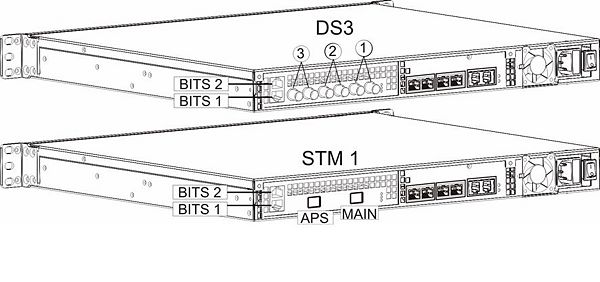Toolpack v2.2:BITS Ports
(Created page with '__NoTOC__ TelcoBridges Tmedia and Tdev devices support the sharing of a precision clock among multiple devices via the Building Integrated Timing Supply (BITS) method. With Telco…') |
(→Using BITS ports for signaling) |
||
| Line 13: | Line 13: | ||
== Using BITS ports for signaling == | == Using BITS ports for signaling == | ||
Starting with release 2.3 of [[Toolpack]], it is possible to convert unused BITS ports into [[Signaling_Ports|signaling ports]] in order to recover a channel on the primary DS3 or STM-1 connection. | Starting with release 2.3 of [[Toolpack]], it is possible to convert unused BITS ports into [[Signaling_Ports|signaling ports]] in order to recover a channel on the primary DS3 or STM-1 connection. | ||
| + | However, the converted ports will be used as trunks, and not as clocking sources. | ||
== Related actions == | == Related actions == | ||
Latest revision as of 16:07, 18 November 2009
TelcoBridges Tmedia and Tdev devices support the sharing of a precision clock among multiple devices via the Building Integrated Timing Supply (BITS) method. With TelcoBridges hardware, BITS Ports are derived from DS3 and STM-1 TDM adapters of a Tdev TMP6400 or a Tmedia TMG3200, as well as from a TMS1600.
BITS ports and clocking
In order to use BITS as a clocking source, the BITS ports of a TDM module are assigned to a line service that will carry the BITS port signaling. BITS Ports are shown in the figure below.
Click here for specific information on configuring BITS ports as a clocking source.
Using BITS ports for signaling
Starting with release 2.3 of Toolpack, it is possible to convert unused BITS ports into signaling ports in order to recover a channel on the primary DS3 or STM-1 connection. However, the converted ports will be used as trunks, and not as clocking sources.
